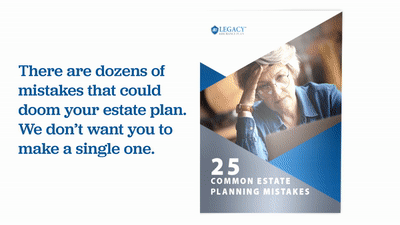It’s widely understood that estate planning helps individuals protect their assets, provide for their loved ones and ensure their wishes are carried out after they pass away. However, according to Caring.com's 2024 Wills and Estate Planning Survey, only 32% of Americans currently have a will, marking a 6% decline from 2023 and the first decrease in estate planning rates since 2020. This raises important questions: Why is having a will important, and why do some people choose not to have one? Moreover, why might someone need a will even if they believe they have nothing to leave behind, and what are the potential disadvantages of having a will? This article will delve into these questions and explore the key findings of Caring.com's survey to shed light on the current state of estate planning in the United States.
What is the importance of having a will?
A last will and testament is a legal document that outlines an individual's wishes for the distribution of their assets after they pass away. It is a critical component of any comprehensive estate plan, as it ensures that the deceased's property is allocated according to their desires and minimizes the potential for family disputes. Without a will, the distribution of assets is left to the state's intestacy laws, which may not align with the individual's preferences or the needs of their loved ones.
In addition to specifying the distribution of assets, a will can also be used to name guardians for minor children, designate executors to manage the estate and outline funeral or burial arrangements. By having a will in place, individuals can provide clear guidance and minimize the burden on their family members during an already difficult time.
Why do some people choose not to have a will?

Despite the importance of having a will, many Americans still neglect this crucial aspect of estate planning. According to Caring.com's survey, 40% of people who don't have a will say it's because they don't have enough assets to leave anyone. This represents a 14% increase from 2023 in the number of U.S. adults citing "a lack of assets" as their reason for not having a will.
This belief that one needs significant wealth to justify having a will is a common misconception. In reality, even individuals with modest assets can benefit from having a will in place. Without a will, the state's intestacy laws will determine how assets are distributed, which may not align with the individual's wishes or the needs of their loved ones. This can lead to unintended consequences and even family disputes.
Other reasons people may choose not to have a will include a lack of knowledge about the process, a belief that they are too young to need one or a general avoidance of thinking about death and end-of-life matters. Some individuals may also assume that their family members will automatically inherit their assets, without realizing the potential complications and delays that can arise without proper estate planning and professional guidance.
Are there disadvantages to having a will?
While having a will is generally considered advantageous, there are some potential drawbacks to consider. One of the primary disadvantages is that a will must go through probate, which is the legal process of validating the will and distributing assets according to its terms. Probate can be time-consuming and expensive, with legal fees and court costs potentially eroding the value of the estate.
Additionally, a will becomes a public record once it enters probate, meaning that the details of an individual's assets and beneficiaries can become accessible to anyone who seeks out the information. This lack of privacy may be a concern for some individuals who wish to keep their financial matters confidential.
Another potential disadvantage is that a will can be contested by family members or other interested parties who believe they have been unfairly excluded or that the deceased was unduly influenced or lacked the mental capacity to create the will. While such challenges are relatively rare, they can lead to prolonged legal battles and emotional strife for the family.
What is the role of trusts in estate planning?

While wills are the most well-known estate planning tool, trusts can also play a valuable role in managing and protecting assets. A trust is a legal arrangement in which a trustee holds and manages assets on behalf of designated beneficiaries. Trusts can be used for a variety of purposes, such as minimizing estate taxes, providing for a special needs loved one or controlling the distribution of assets over time.
One of the primary advantages of trusts is that they can help avoid probate, as assets held in a trust are not subject to the probate process. This can save time, money and maintain privacy for the family. Trusts can also provide greater flexibility and control over the distribution of assets, allowing the creator of the trust to specify the terms and conditions under which beneficiaries receive funds.
However, trusts also come with some disadvantages. They can be more complex and expensive to set up and maintain than a simple will, and they require the ongoing involvement of a trustee to manage the assets. Additionally, not all assets can be easily transferred into a trust, and doing so may have tax or other implications that need to be carefully considered.
The importance of comprehensive estate planning

While having a will is a critical first step in estate planning, it is just one component of a comprehensive approach. A well-rounded estate plan should also consider other important documents and arrangements, such as:
- Powers of attorney. These legal documents allow an individual to designate someone else to make financial or medical decisions on their behalf if they become incapacitated.
- Advance directives. These documents, which include living wills and health care proxies, outline an individual's preferences for end-of-life medical care and designate someone to make healthcare decisions on their behalf.
- Beneficiary designations. Many assets, such as retirement accounts and life insurance policies, allow the owner to name beneficiaries directly, bypassing the probate process. It's essential to review and update these designations regularly to ensure they align with the overall estate plan.
- Gifting strategies. For individuals with larger estates, strategic gifting during their lifetime can help minimize estate taxes and provide for loved ones in a tax-efficient manner.
- Business succession planning. For business owners, a comprehensive estate plan should also address the future of the company, including who will take over leadership and how ownership will be transferred.
By taking a holistic approach to estate planning and working with experienced attorneys and financial professionals, individuals can ensure that their assets are protected, their wishes are carried out and their loved ones are provided for in the manner they intend.
Do young adults need an estate plan?
One notable finding from Caring.com's survey is that young adults aged 18-34 are the only age group that has not seen a decline in estate planning rates since 2020. This may be due to a growing awareness among younger generations about the importance of financial planning and the need to prepare for the unexpected.
While young adults may have fewer assets than their older counterparts, they still have important considerations to address in their estate plans. For example, they may have student loan debts, digital assets or even young children who would need guardianship arrangements. By starting the estate planning process early, young adults can ensure that their wishes are documented and that their loved ones are protected.
Additionally, young adults who are just starting their careers and families can benefit from establishing good financial habits and a strong foundation for their future. Estate planning can be an essential part of this process, helping them to think long-term and make informed decisions about their assets and legacy.
Encouraging estate planning in 2024 and beyond

Given the decline in estate planning rates observed in Caring.com's survey, it is clear that more needs to be done to educate and encourage Americans to prioritize this critical aspect of financial planning. Some potential strategies include:
- Increasing awareness. Financial institutions, legal professionals and community organizations can work together to raise awareness about the importance of estate planning and the risks of not having a plan in place.
- Making the process more accessible. Offering low-cost or pro bono estate planning services, as well as online tools and resources, can help make the process more accessible and less intimidating for individuals who may be hesitant to get started.
- Addressing common misconceptions. By dispelling myths about estate planning, such as the belief that it is only for the wealthy or elderly, professionals can help encourage more people to take action and protect their assets and loved ones.
- Focusing on life stages. Tailoring estate planning education and resources to different life stages, such as when individuals get married, have children, or approach retirement, can help make the process feel more relevant and actionable.
By taking a proactive and comprehensive approach to estate planning, Americans can ensure that their wishes are honored, their assets are protected, and their loved ones are provided for, regardless of the challenges that may lie ahead.
Conclusion
Caring.com's 2024 Wills and Estate Planning Survey reveals a concerning decline in the number of Americans who have a will or estate plan in place. While this trend may be driven in part by misconceptions about the need for estate planning, it underscores the importance of continued education and encouragement around this critical aspect of financial management.
By understanding the benefits, limitations and potential drawbacks of wills, trusts and other estate planning tools, individuals can make informed decisions about how best to protect their assets and provide for their loved ones. Whether young or old, wealthy or of modest means, every adult should prioritize estate planning as a fundamental part of their financial strategy.
As we look to the future, it is clear that more needs to be done to promote and support estate planning efforts across the country. By working together to increase awareness, accessibility and understanding, we can help ensure that all Americans have the knowledge and resources they need to secure their legacies and provide for the people they care about most.



